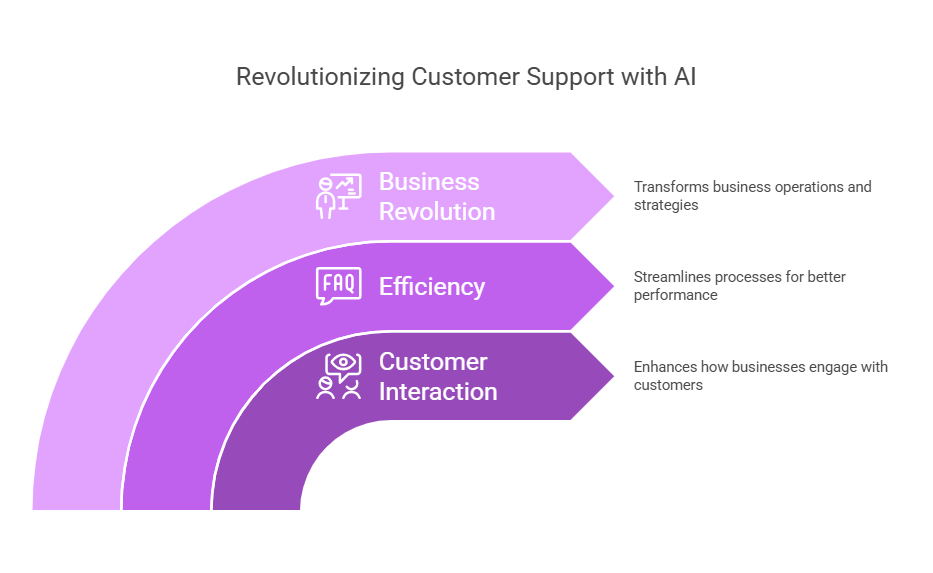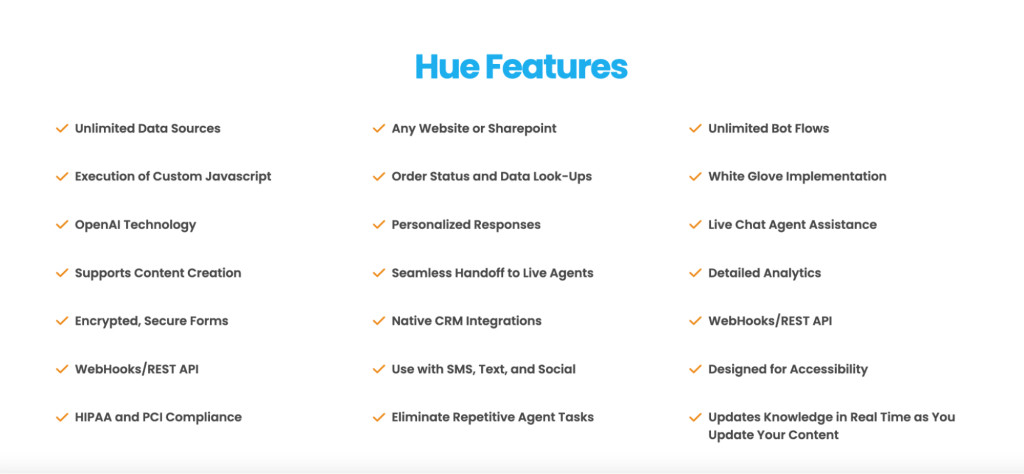Customer support can be a difficult task. From never-ending queues to repetitive inquiries, it’s a challenge to keep customers satisfied. Thankfully, the superheroes of customer support have arrived: AI knowledge base management. In this article, we’ll delve deep into the world of AI knowledge base management and explore its incredible benefits in customer support.
Understanding AI Knowledge Base Management

AI knowledge base management may sound like something out of a sci-fi movie, but it’s a real-life tool that helps real customers. Let’s start by defining what it actually means.
In the realm of AI-assisted customer support, knowledge base management refers to the utilization of advanced algorithms and technologies to store, organize, and retrieve vast amounts of information. It’s like having a super-smart sidekick who can instantly retrieve information and generate responses.
Imagine a scenario where a customer reaches out to a support agent with a complex query. Instead of spending valuable time searching through endless documents and resources, the support agent can rely on an AI-powered knowledge base management system. This system can quickly analyze the customer’s query, search through its extensive database, and provide accurate and relevant solutions in a matter of seconds. It’s like having a personal genius at your disposal.
At its core, it relies on machine learning algorithms that continuously analyze and understand the vast amount of data stored within the knowledge base. These algorithms can identify patterns, extract relevant information, and generate insights that aid in resolving customer queries.
AI knowledge base management systems employ natural language processing (NLP) techniques to understand and interpret customer inquiries. NLP allows the system to comprehend the context, sentiment, and intent behind the customer’s message, enabling it to provide highly personalized responses.
One of the key advantages of AI knowledge base management is its ability to learn and improve over time. As the system interacts with more customers and accumulates more data, it becomes increasingly adept at understanding and addressing a wide range of customer queries. This continuous learning process, often guided by experts like Addepto AI Consulting, ensures that the knowledge base remains up-to-date and capable of delivering accurate solutions.
AI Advances in Knowledge Base Management
Knowledge base management is a crucial aspect of any organization’s operations. According to Fantasy.ai, 78% of organizations now use AI in at least one business function, reflecting how AI has transformed tasks like creating, organizing, and maintaining a repository of information. Traditionally, this process was time-consuming and labor-intensive, requiring manual categorization and tagging of data. However, with the advent of Artificial Intelligence (AI), knowledge base management has been revolutionized.
We’ve all received those generic, copy-paste responses that make you question if you’re talking to a robot. Luckily, AI can do better. With natural language processing, AI can understand customer queries and generate personalized responses in a flash. Working with an experienced AI development company ensures that these intelligent systems are tailored to your business needs for maximum impact.
AI-powered knowledge base management systems can review customer queries, identify the underlying intent, analyze the sentiment, and generate tailored responses. By understanding the nuances of human language, AI can provide accurate and contextually appropriate answers. This not only saves time for both customers and support agents but also enhances the overall customer experience.
Moreover, AI can go beyond simple text-based responses. With advancements in natural language generation, AI can generate detailed and informative explanations, step-by-step guides, and even interactive visualizations to assist users. This level of automation and intelligence in response generation significantly reduces the need for human intervention, allowing organizations to handle a larger volume of customer inquiries efficiently.
By leveraging systems that automatically analyze outage workflows and anticipate queries, businesses can transform their maintenance operations. For example, a dedicated STO management software solution offers structured automation and decision support for shutdown and turnaround planning like the one found here.
Benefits of AI Knowledge Base Management in Customer Support

AI knowledge base management goes beyond just being a fancy technology. It has the power to revolutionize the way businesses interact with their customers, providing a seamless and efficient support experience.
Let’s dive into some of the key benefits.
Improving Customer Satisfaction with AI
Happy customers, happy life! AI knowledge base management ensures that customers receive accurate and personalized solutions in record time. Gone are the days of waiting on hold for hours or being transferred from one agent to another. With AI, customers can access a vast repository of information and find answers to their queries instantly.
AI systems have the ability to learn and adapt to customer preferences, providing tailored recommendations and solutions. This level of personalization not only saves time but also makes customers feel valued and understood. It’s like having a knowledgeable support agent available 24/7, ready to assist with any issue.
By leveraging AI in customer support, businesses can significantly enhance customer satisfaction rates and build long-lasting relationships.
Employee Satisfaction and Efficiency
AI frees up human agents’ time, allowing them to focus on complex issues that require a human touch. By automating routine tasks and providing instant solutions to common queries, AI empowers support agents to tackle more challenging and intricate problems. This not only improves the efficiency of customer support operations but also enhances the job satisfaction of support agents.
Another significant advantage of AI in customer support is its ability to provide consistent and accurate responses. Unlike human agents who may vary in their knowledge and expertise, AI systems deliver standardized information and solutions. This ensures that every customer receives the same level of service, regardless of the support agent they interact with. The use of AI results in fewer agent mistakes and more satisfactory customer service.
Cost-Effectiveness of AI Systems
Time is money, and AI saves both. By automating mundane tasks and providing quick solutions, AI reduces the workload on human agents. This means faster response times and lower labor costs. Instead of spending hours manually searching for information or drafting responses, support agents can focus on more complex and critical customer issues.
AI systems can analyze large volumes of data in seconds, extracting relevant information and presenting it in a concise and easy-to-understand manner. This not only improves efficiency but also ensures consistency in the support provided. Customers can expect the same level of accuracy and quality in every interaction, regardless of the agent handling their case.
The cost-effectiveness of AI systems cannot be overlooked. While hiring and training human agents can be expensive, implementing AI technology is a one-time investment with long-term benefits. It’s like having a team of superheroes saving the day, without the outrageous salaries.
Challenges and Solutions in Implementing AI Knowledge Base Management
Like any superhero, AI knowledge base management faces its fair share of challenges. But fear not, solutions are here.
Overcoming Common Obstacles in AI Implementation
Implementing AI can be a daunting task, but with proper planning and training, it becomes a breeze. Companies need to invest in robust AI systems, provide comprehensive training to agents, and continuously monitor and refine the AI algorithms. With these measures in place, AI knowledge base management can conquer any challenge.
Ensuring Quality and Accuracy in AI Systems
Accuracy is fundamental in customer support, and AI is no exception. To ensure quality and accuracy, AI systems need regular updates and maintenance. Companies must also implement measures to prevent bias and ensure ethical AI practices. It’s like having an AI ethics committee, making sure our knowledge base is as pure as snow.
Integrating AI with Internal Knowledge Base
If you already have an internal knowledge base system in place, integrating AI can be a straightforward process.
Structure and Organization
The first step is to ensure that your knowledge base is properly structured, with well-organized articles, tags, and categories. This organization helps AI understand the scope and context of the information.
Having a well-structured internal knowledge base is crucial for effective integration with AI. It allows the model to navigate through the vast amount of information and provide accurate responses. Imagine a knowledge base as a library, and each article, tag, and category as a book, chapter, and section respectively. This organization not only helps AI locate relevant information quickly but also enables it to grasp the interconnectedness of different topics.
AI Training
Once your knowledge base is properly structured, the next step is to train your AI tools using your internal knowledge base data. By exposing AI to your organization’s specific knowledge domain, it can better understand and respond to queries related to your industry or business. Fine-tuning the model with relevant data ensures that users receive accurate and tailored responses when interacting with the knowledge base. Try an example of AI chatbot trained on your website instantly.
Training AI with your internal knowledge base data is like providing it with a crash course on your organization’s expertise. It immerses the model in the intricacies of your industry, allowing it to learn the specific jargon, concepts, and nuances that are unique to your business. This deep understanding empowers AI to provide insightful and contextually appropriate responses, enhancing the overall user experience.
Fine-tuning the model with your internal knowledge base data helps AI develop a sense of familiarity with your organization’s processes, products, and services. It becomes well-versed in the intricacies of your business operations, enabling it to provide accurate and up-to-date information to users. This level of expertise not only enhances the user experience but also builds trust and credibility among your customers or employees.
Introducing HUE: LiveHelpNow’s AI System
Hue, LiveHelpNow’s ChatGPT-powered customer support tool, quickly finds information within a website and uses it to answer inquiries in real-time. Similarly, the tool can search knowledge bases and other data sources.
With Hue’s ability to understand and retrieve information from your knowledge base, it can swiftly provide agents with relevant articles, answers, or suggestions to help resolve customer issues effectively. This collaborative approach not only saves time but also ensures consistent and accurate responses to customer inquiries.





